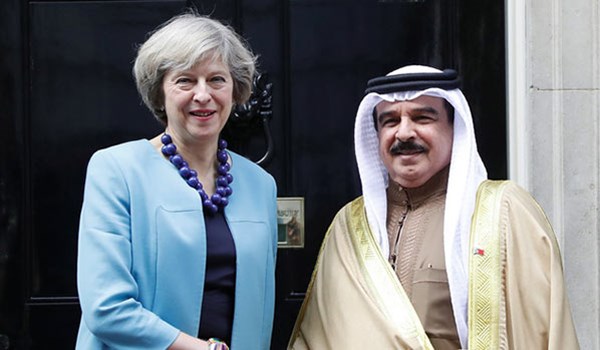
RNA - This time though, it is not the United States which has for many years been obsessed with curbing the alleged Iranian threat; it is Britain’s Prime Minister Theresa May.
Addressing a summit of Persian Gulf Arab leaders in Bahrain on Wednesday, May said the nuclear agreement with Iran is “vitally important” for security, while stressing Britain remains “clear-eyed” about the threat posed by the country.
She added, “We secured a deal which has neutralized the possibility of Iran acquiring nuclear weapons for over a decade. That was vitally important for regional security. But we must also work together to push back against Iran’s aggressive regional actions, whether in Lebanon, Iraq, Yemen, Syria or in the (Persian) Gulf itself.”
As previously, if the British prime minister wants to avoid being ridiculed, she needs to do better than that quote. She should spell out why she ignored to mention the slaughter of thousands of innocents at weddings and funerals by the Saudi war planes in Yemen.
May should explain “frankly and honestly” why she seeks to shore up Britain’s trade and security relations with Qatar, the United Arab Emirates, Kuwait, Bahrain, Oman and Saudi Arabia, at a time when they are busy destabilizing the entire region. They send forces and warplanes to Yemen, aid and abet "moderate" terrorist groups in Syria, provide support to Al-Qaeda and ISIL, and undermine stability in Lebanon and Iraq.
On the same score, the British prime minister should explain why despite criticism her government continues to be in the wrong side of International Human Rights Law by ignoring widespread human-rights issues and specific cases of imprisoned or exiled dissidents in favour of bolstering economic ties and security cooperation with Bahrain and Saudi Arabia.
You get the idea. In not doing all of this, and despite doing some light finger-wagging, the British prime minister hopes to weaken the international system of checks and balances essential to what she calls her country’s national interests — a disastrous policy that has led to the deaths of hundreds of thousands of civilians in Iraq, Syria, Yemen and Libya.
Per usual, in the face of her fake concerns about the alleged Iranian threat to the region, the British prime minister will have to make freely available to the press and the public facts and data essential to proving just that – which we all know don’t exist but still have flooded Western politics and media smear campaigns with rich Arabs’ money.
Obviously, May’s pledge for Britain to remain “clear-eyed” about the alleged threat posed by Iran is only meant to appease her Arab partners – overriding concerns about human rights, as well as the Saudi-led war on Yemen. A shabby policy as such will not help regional security and peace - given London’s myriad conflicts of interest, the naval base it has built in Bahrain to destabilise the Persian Gulf, and shabby rhetoric about human rights issues that is the same old revolving door between the West and oil-rich Arab monarchies.
As is, utterly disingenuous Prime Minister May went to Bahrain to build new alliance and manage repression instead of ending it. She didn’t go there to call out the despotic regimes that spin through that old door.
Under Theresa May’s new vision, the “oldest and most dependable friends” are free to pass through it as London will shield them from UN probes. They can have a seat at the UN Human Rights Council. They can even join the United States and partners of choice that have kicked International Law and International Human Rights Law to the curb, and turned Syria and Yemen into failed states. That is the spirit in which May went to Bahrain.
847/940